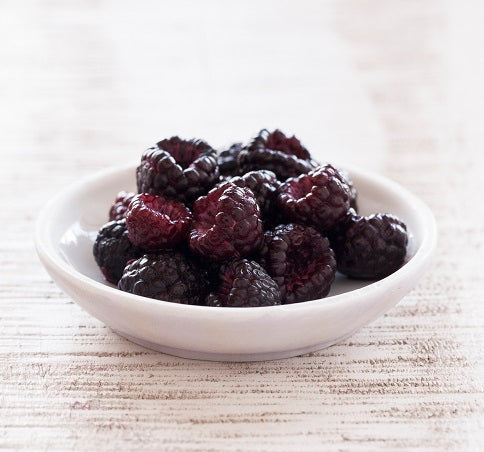Fungi and Fiber: How Mushrooms Benefit Your Gut Health
Introduction: The Fiber Optics of Mushrooms and Digestive Health
While their rich flavors and satisfying textures have long enhanced meals around the globe, mushrooms are now gaining attention for more than just their place in the dining room; they are now recognized as powerful contributors to digestive health. Recent scientific studies have highlighted the vital role of dietary fiber in maintaining a healthy gut, and mushrooms, rich in unique prebiotic fibers like beta-glucans and chitin, are now in the spotlight as a superfood for gut health.
The role of the gut microbiome in overall health has become a major focus medically, and for good reason. Our digestive tract is home to trillions of microorganisms, including bacteria, fungi, and viruses, which influence everything from digestion and nutrient absorption to immune response and even mental well-being.
Maintaining a balanced and diverse microbiome is now understood to be essential for good health, and diet plays a leading role in shaping this internal ecosystem. As people increasingly seek natural health-enhancing foods to support digestion, mushrooms have emerged as a top contender. These nutrient-dense fungi contain not only valuable vitamins and minerals but also complex fibers that serve as nutrition for beneficial gut bacteria.
As we gain a better understanding of these nutritional interrelationships, the potential applications of mushroom fiber in gut-supportive therapies continue to expand.
In this article, we’ll delve into how mushrooms benefit digestive health, in particular their gut-friendly fiber, and discuss practical ways to incorporate them into our diet. From shiitake to maitake, from oyster to porcini mushrooms, we will see how these fiber-rich fungi can support a healthier gut and contribute to overall well-being.
Understanding the Importance of Gut Health
Before we dive into how mushrooms support digestion, it is worth stepping back to understand why gut health has become such a major focus for wellness. In recent years, science has uncovered just how central our digestive system is to overall health. Far beyond simply breaking down food, the gut, particularly the gut microbiome, plays a key role in everything from immune strength to mental clarity.
The gut microbiome is a thriving community of trillions of microorganisms, including bacteria, fungi, viruses, and other microbes that live mostly in our intestines. These tiny organisms work together in a complex ecosystem, affecting nearly every system in the body. In fact, around 95% of all microbes in the human body live in the gut, with roughly 160 species interacting in both helpful and potentially harmful ways. When the gut microbiome is balanced, meaning the beneficial bacteria outnumber the harmful ones, it helps us digest food, absorb nutrients, regulate inflammation, and defend against illness.
A healthy gut starts with good digestion. When our digestive system is working well, we experience regularity, less bloating, and improved nutrient absorption. Many common digestive concerns, like constipation, diarrhea, and irritable bowel syndrome (IBS), are connected to imbalances in the gut microbiome. However, the impact does not stop there.
Roughly 70–80% of the body’s immune cells live in the gut, making it a central hub for immune defense. A strong and diverse gut microbiome trains these immune cells to recognize and respond appropriately to threats, whether from pathogens or allergens. When the gut is out of balance, it can weaken the immune system and make the body more vulnerable to infections, chronic inflammation, and even autoimmune diseases.
Gut health also plays an essential role in mental well-being, thanks to the gut-brain connection, often referred to as the gut-brain axis. This communication network between the gastrointestinal system and the brain helps explain why we get “butterflies” when we’re nervous or feel queasy when stressed. The trillions of microbes in our gut produce chemical messengers, including serotonin and dopamine, which influence mood and cognitive function. Poor gut health has been linked to heightened stress, anxiety, and even depression.
In fact, researchers now consider the gut to be the body’s “second brain.” This is not just poetic language; our digestive system has its own network of neurons that communicate directly with the brain and nervous system. Disorders like IBS are now understood to involve both physical digestive symptoms and how the brain interprets and responds to those symptoms. It is a two-way street: what we eat affects our gut, and our gut health, in turn, affects our mental and emotional state.
Unfortunately, modern lifestyles do not always support a healthy gut. Diets high in ultra-processed foods, low in fiber, along with chronic stress, sleep deprivation, and lack of physical activity can all disrupt the delicate balance of the microbiome. This disruption can lead to more than just digestive discomfort. It has been associated with an increased risk of obesity, type 2 diabetes, cardiovascular disease, and even certain cancers.
The good news is that gut wellness is dynamic, and can improve quickly with the right changes in diet and lifestyle. Remarkably, our gut microbiome can start to shift within just 24 hours of changing what you eat. That is why it is so important to nourish our body with foods that feed beneficial microbes.
This brings us to mushrooms. These fiber-rich, nutrient-dense fungi are not only delicious but also offer powerful benefits for gut health. Mushrooms contain special types of dietary fiber that act as prebiotics; fuel for the good bacteria in our gut. When these bacteria thrive, they produce short-chain fatty acids (SCFAs), which help maintain the integrity of the gut lining, reduce inflammation, and support immune balance. In the next section, we’ll explore exactly how the fiber provided by mushrooms contributes to digestive health.
Why Fiber is a Gut-Health Powerhouse
When it comes to maintaining a healthy gut, fiber is essential. It supports everything from regular bowel movements to the overall balance of our gut microbiome. However, not all fiber is created equal. In fact, understanding the two main types, soluble and insoluble fiber, can help explain why a diverse intake, including fiber from mushrooms, is so beneficial.
Soluble fiber dissolves in water and forms a gel-like substance in the digestive tract. It helps soften stool, making it easier to pass, and slows down digestion. This not only supports smoother bowel movements but also helps regulate blood sugar and cholesterol levels. Insoluble fiber, on the other hand, does not dissolve in water. It adds bulk to the stool and promotes the movement of food through the digestive system, preventing constipation and encouraging regularity.
Both types of fiber are crucial, and mushrooms offer a powerful combination of the two, particularly in the form of beta-glucans and chitin, two prebiotic fibers that feed beneficial gut bacteria. When these fibers reach the colon, they are fermented by gut microbes, producing short-chain fatty acids (SCFAs) like butyrate. SCFAs fuel the cells lining the colon, strengthen the gut barrier, and help reduce inflammation throughout the body.
As a result, mushroom fiber positively affects blood sugar levels, blood pressure, and lipid metabolism, while also supporting immune function. Because of these wide-ranging benefits, researchers are exploring its use for future therapeutic applications.
More importantly, fiber intake has a direct connection to gastrointestinal (GI) health. Diets low in fiber are associated with an increased risk of conditions such as irritable bowel syndrome (IBS), inflammatory bowel disease (IBD), diverticulitis, and even colorectal cancer. Alternatively, fiber-rich diets have been shown to promote microbial diversity and gut resilience, protecting against these disorders.
Mushrooms stand out among fiber sources because they offer a versatile, plant-based way to nourish the gut, while also delivering vitamins, minerals, antioxidants, and anti-inflammatory compounds.
Top Mushrooms for Dietary Fiber and Gut Health
While most mushrooms offer some digestive benefits, certain varieties shine when it comes to supporting gut health. These mushrooms are rich in prebiotic fibers, beta-glucans, and other bioactive compounds that feed your good gut bacteria and promote smoother, more balanced digestion. If you are looking to increase your fiber intake and nourish your microbiome, here are some of the best mushrooms to include in your meals:
Shiitake Mushrooms
Shiitake mushrooms are one of the most popular culinary mushrooms, and for good reason. Beyond their savory, umami flavor, shiitakes are packed with beta-glucans and other prebiotic compounds that help feed beneficial bacteria in the gut. Their fiber content supports regular bowel movements, while their bioactive polysaccharides have been shown to reduce inflammation and support immune function.
Scientific research on shiitake mushrooms suggests that its unique polysaccharides can enhance microbiome diversity, lower harmful cholesterol, and improve beneficial HDL cholesterol. With both flavor and function, shiitakes are a fantastic everyday mushroom for digestive support.
Maitake Mushrooms
Also known as “hen of the woods,” maitake mushrooms are loaded with complex polysaccharides like beta-glucans that help maintain microbial balance in the gut. These mushrooms have been studied for their ability to regulate blood sugar, support immune health, and reduce inflammation in the digestive tract.
Maitake’s prebiotic fibers foster the growth of friendly bacteria, making them a great choice for those dealing with digestive discomfort or seeking extra gut support. Their earthy, peppery flavor also makes them a delicious ingredient in soups, stir-fries, and roasted veggie dishes.
Oyster Mushrooms
Oyster mushrooms are another excellent source of both soluble and insoluble fiber. Their high beta-glucan content helps fuel good bacteria like Bifidobacterium and Lactobacillus, which produce short-chain fatty acids (SCFAs) that nourish the gut lining and support regular digestion.
These mild, tender mushrooms are also packed with antioxidants, which protect the gut lining from inflammation and oxidative stress. Easy to cook and widely available, oyster mushrooms are a simple, effective way to boost your gut-friendly fiber intake.
Porcini Mushrooms
Porcini mushrooms are a flavorful wild mushroom. While they may not be as common as other varieties, they are a rich source of dietary fiber and antioxidants. Their fiber content supports bowel regularity, while their anti-inflammatory properties may help soothe the gut lining and reduce digestive irritation. Dried porcini mushrooms are widely available and can be easily rehydrated for use in sauces, risottos, or broths. bringing both flavor and gut health benefits to your table.
Other Fiber-Friendly Fungi
Don’t overlook other fiber-rich mushrooms like enoki, king trumpet, and lion’s mane. Lion’s mane, in particular, is gaining attention not only for its potential brain-boosting effects but also for its gut-regulating polysaccharides and prebiotic properties.
Adding Mushrooms for a Gut-Healthy Diet
No matter which variety you choose, adding more mushrooms to your diet is a simple and flavorful way to support digestion and nourish your microbiome from the inside out.
For everyday meals, try tossing mushrooms into stir-fries, soups, stews, or pasta dishes. Their rich, savory flavor enhances everything from creamy sauces to bowls of broth.. Sautéed mushrooms also make a great side dish or a flavorful topping for pizzas, omelets, or grain bowls. Looking for something lighter? Grilled or sautéed mushrooms add texture and depth to salads.
To maximize digestive benefits, aim to include a variety of mushroom types in your weekly meals. Whether you are using fresh, dried or fresh-frozen, experimenting with different preparations makes it easy and delicious to support your gut health with these fiber-rich fungi.
Conclusion
Mushrooms are more than just a tasty addition to your plate; they are a nutritional powerhouse with the potential to transform your gut health. Rich in fiber, prebiotics, and bioactive compounds, mushrooms help nourish beneficial gut bacteria, support immune function, and protect against digestive issues. As science continues to reveal the deep connections between the gut and overall well-being, mushrooms are proving to be valuable allies in maintaining balance and vitality from within.
By incorporating a variety of fiber-rich mushrooms into your meals, you are feeding your body the nutrients it needs to thrive. In embracing the power of mushrooms, you are choosing a delicious and natural way to support your digestive wellness, one satisfying bite at a time.
==================================================================
Resources Used for NWWF Blog #77
Fungi and Fiber: How Mushrooms Benefit Your Gut Health
https://blog.dremilnutrition.com/post/the-magical-mushrooms-for-gut-health-a-comprehensive-guide
https://guthealth.org/unlocking-the-potential-of-edible-mushrooms-for-gut-health/
https://blog.mdpi.com/2024/06/25/mushrooms-gut-health/
https://rrcultivation.com/blogs/mn/role-mushrooms-gut-health-digestion
https://erbology.co/mushrooms-gut-health/?countryiso=GB&post=true
https://nutromushroom.com/blogs/news/best-mushrooms-for-gut-health
https://www.osfhealthcare.org/blog/why-is-gut-health-important/


